Match column-I with column-II and select the correct option
a Gregarious, polyphagous pest i Asterias
b Adult with radial symmetry and larva with bilateral symmetry ii Scorpion
c Book lungs iii Ctenoplana
d Bioluminescence iv Locusta
a(iii), b(i), c(ii),d(iv)
a(ii), b(iv), c(i),d(iii)
a(iii), b(iv), c(i),d(ii)
a(iv), b(i), c(ii),d(iii)
The correct Answer is:C
To solve the matching question, we will analyze each item in Column-I and find the corresponding item in Column-II.
1. Identify A: Gregarious, polyphagous pest
- The term "gregarious" refers to organisms that live in groups, and "polyphagous" means they feed on various types of food. The locust is known for being a gregarious pest that can consume a wide range of plants.
- Match: A (Gregarious, polyphagous pest) → iv (Locusta)
2. Identify B: Adult with radial symmetry and larva with bilateral symmetry
- Asterias refers to starfish, which exhibit radial symmetry in their adult form and bilateral symmetry in their larval form.
- Match: B (Adult with radial symmetry and larva with bilateral symmetry) → i (Asterias)
3. Identify C: Book lungs
- Book lungs are respiratory structures found in arachnids, such as scorpions. They are used for gas exchange.
- Match: C (Book lungs) → ii (Scorpion)
4. Identify D: Bioluminescence
- Ctenoplana, which belongs to the phylum Ctenophora, is known for its bioluminescent properties.
- Match: D (Bioluminescence) → iii (Ctenoplana)
Final Matches:
- A → iv (Locusta)
- B → i (Asterias)
- C → ii (Scorpion)
- D → iii (Ctenoplana)
Correct Option:
The correct sequence is:
- A4, B1, C2, D3
- The term "gregarious" refers to organisms that live in groups, and "polyphagous" means they feed on various types of food. The locust is known for being a gregarious pest that can consume a wide range of plants.
- Match: A (Gregarious, polyphagous pest) → iv (Locusta)
- Asterias refers to starfish, which exhibit radial symmetry in their adult form and bilateral symmetry in their larval form.
- Match: B (Adult with radial symmetry and larva with bilateral symmetry) → i (Asterias)
- Book lungs are respiratory structures found in arachnids, such as scorpions. They are used for gas exchange.
- Match: C (Book lungs) → ii (Scorpion)
- Ctenoplana, which belongs to the phylum Ctenophora, is known for its bioluminescent properties.
- Match: D (Bioluminescence) → iii (Ctenoplana)
- A → iv (Locusta)
- B → i (Asterias)
- C → ii (Scorpion)
- D → iii (Ctenoplana)
The correct sequence is:
- A4, B1, C2, D3
Topper's Solved these Questions
Similar Questions
Match the column-I with column-II and select the correct option :
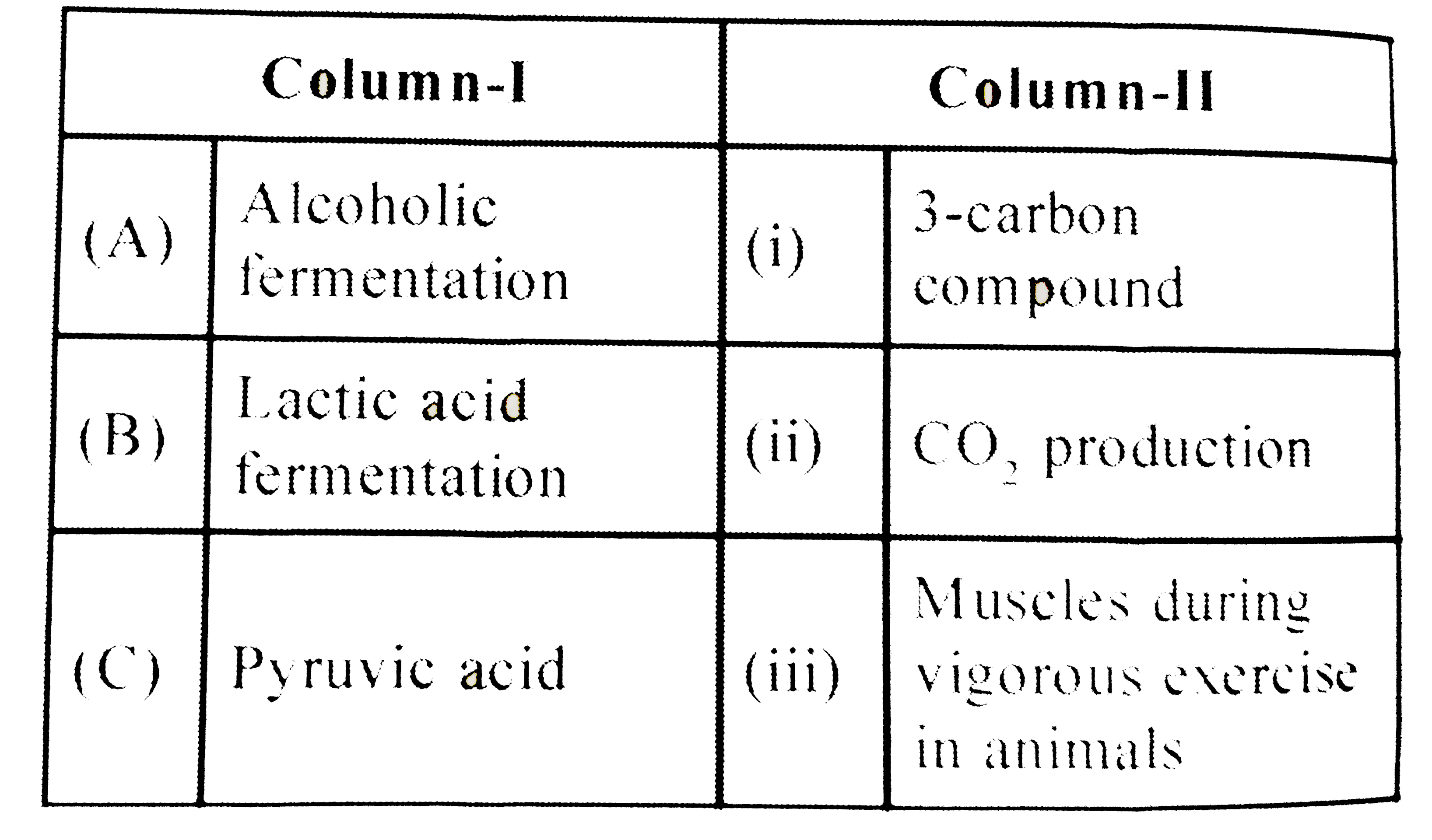
View SolutionMatch the column-I with column -II and select the correct option :
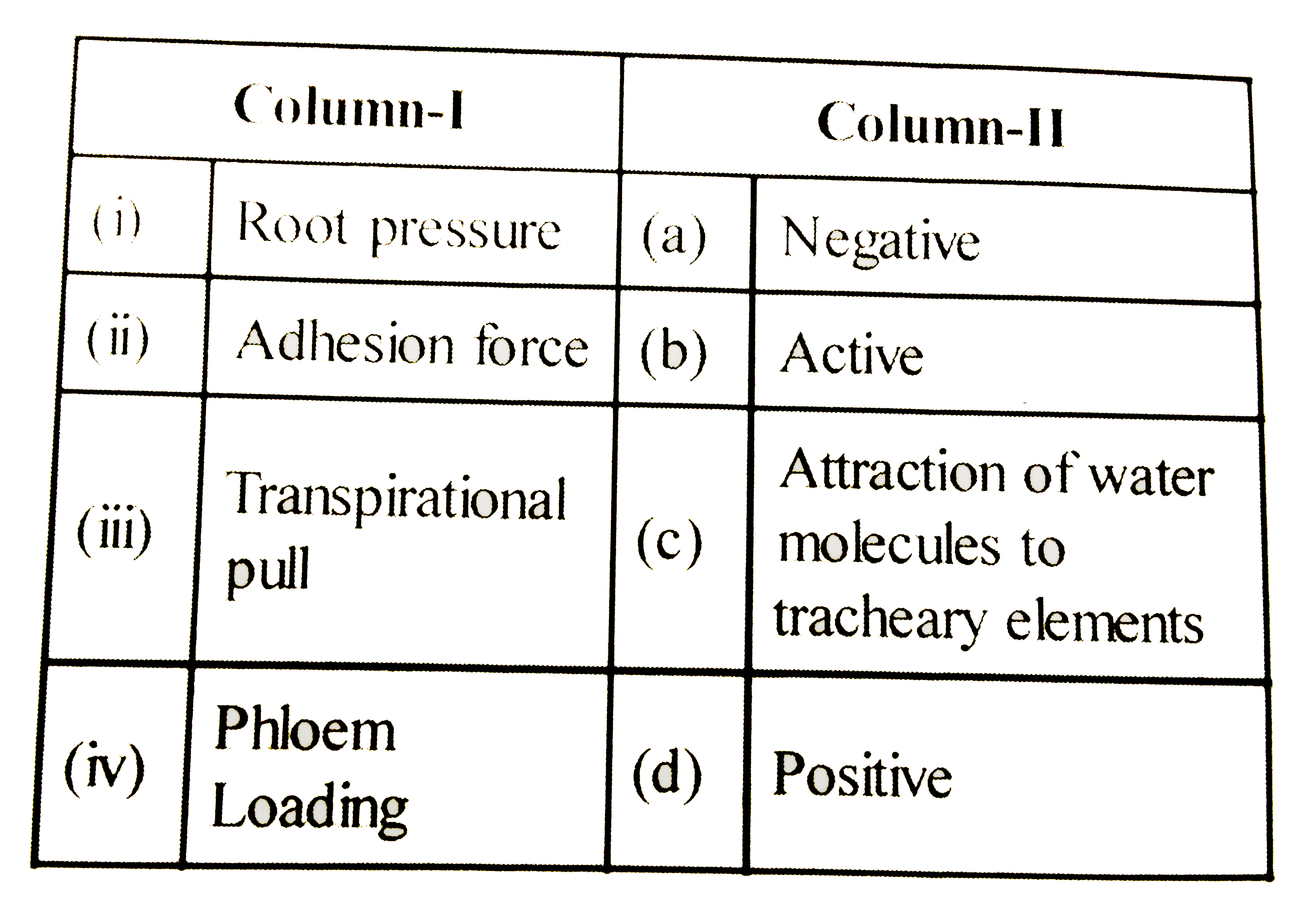
View SolutionMatch the column I with column II and select the correct option
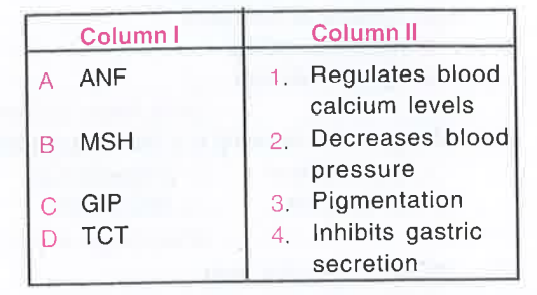
View SolutionMatch column-I with column-II and select the correct answer :-
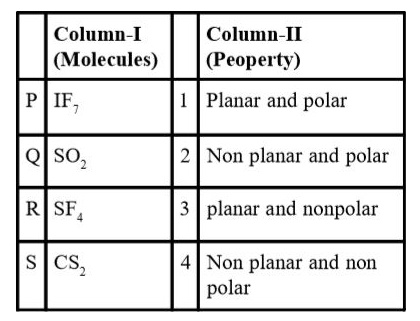
View SolutionMatch column I with column II and choose the correct option.
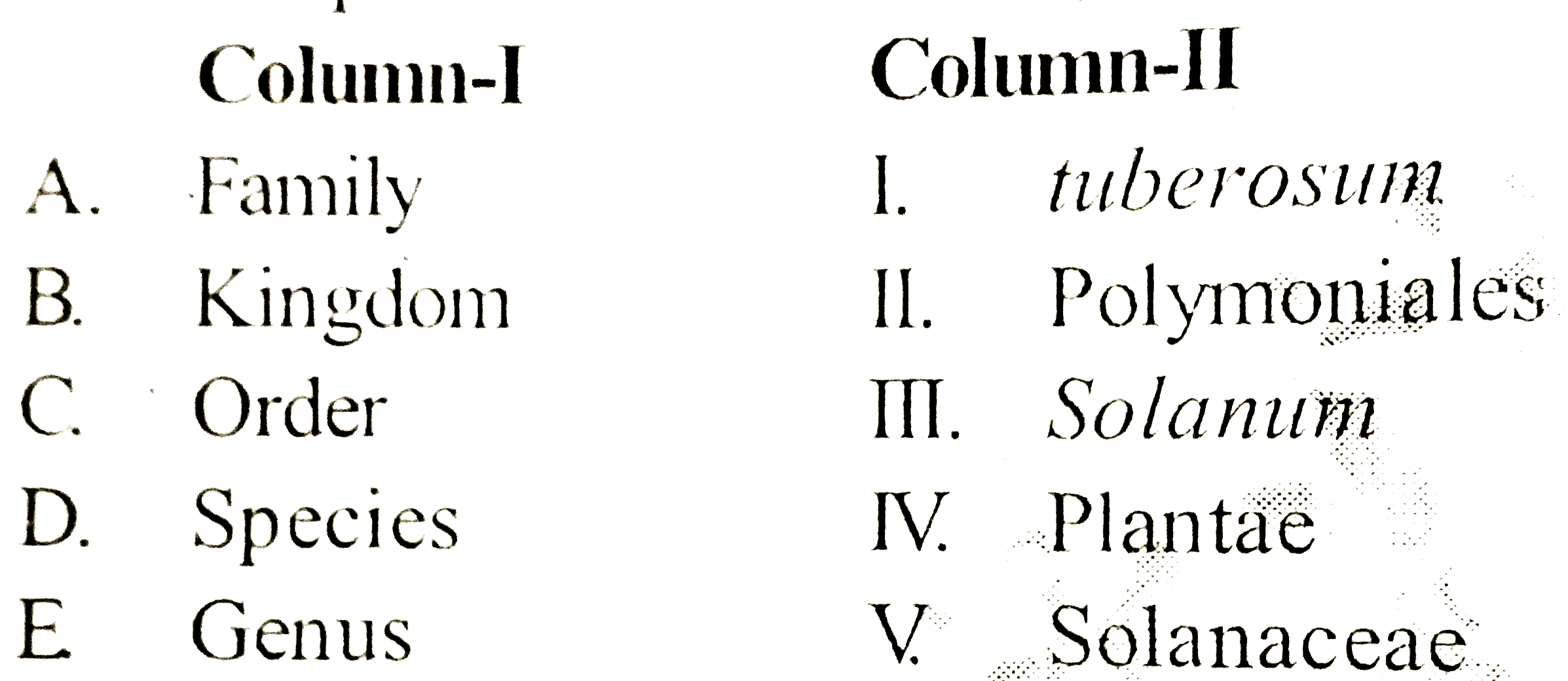
View SolutionMatch the column-I with column-II and select the correct one : -
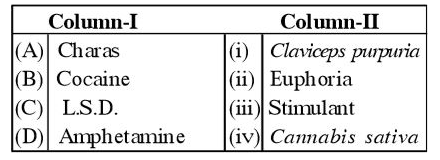
View SolutionMatch column I with column II and select the correct answer :
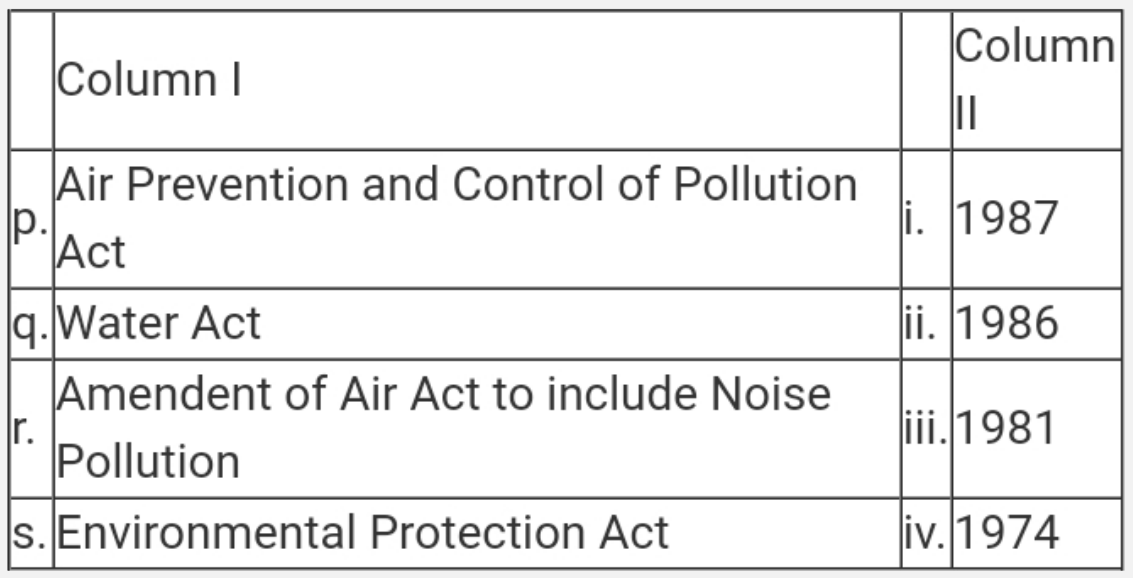
View SolutionMatch the terms column-I with column-II and select the correct option
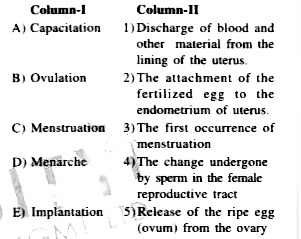
View SolutionMatch the terms column-I with column-II and select the correct option
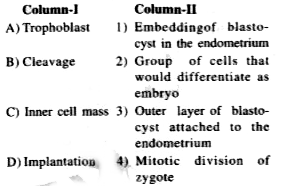
View SolutionMatch the column-I with column-II and choose the correct option :
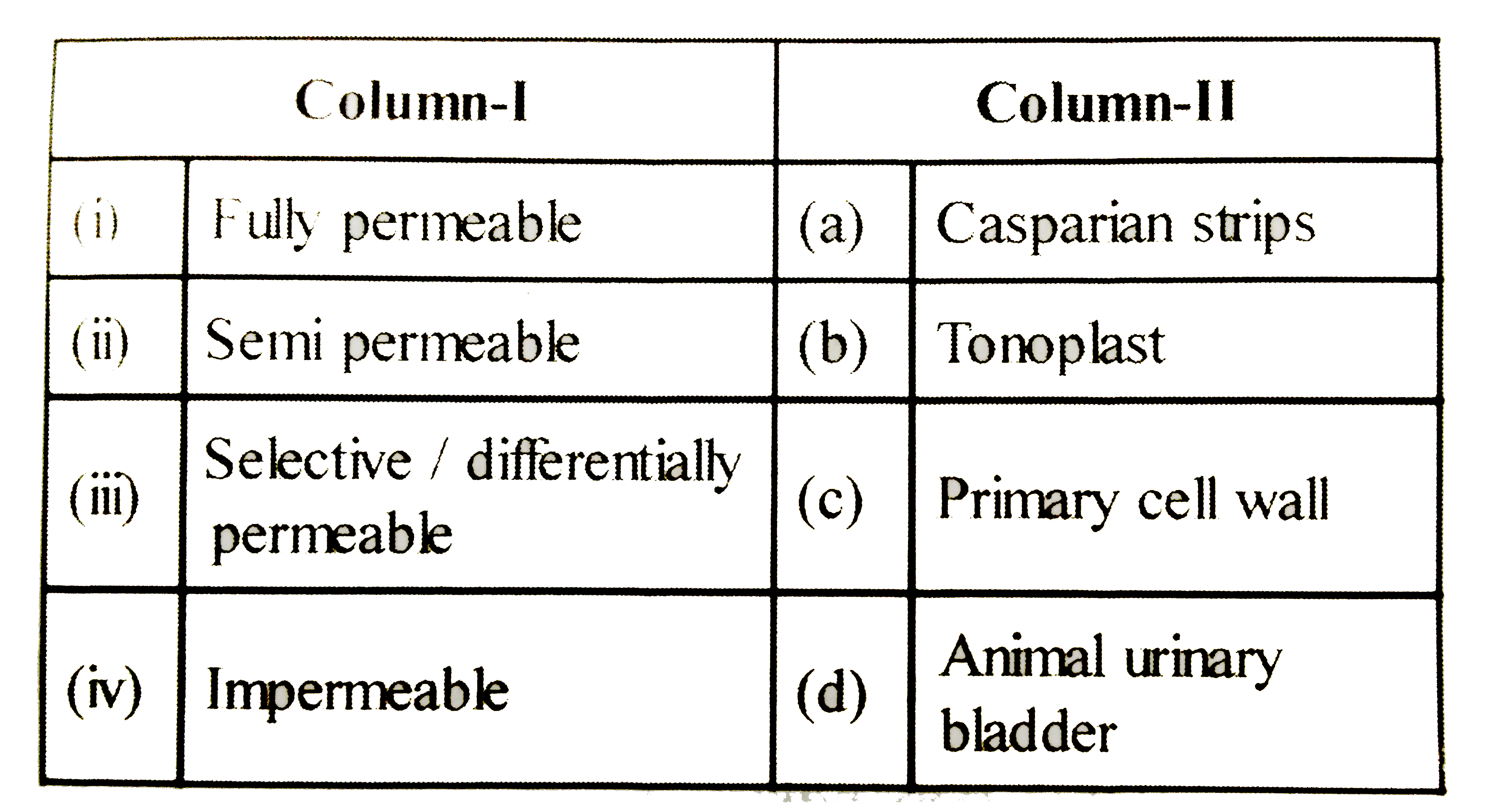
View Solution
